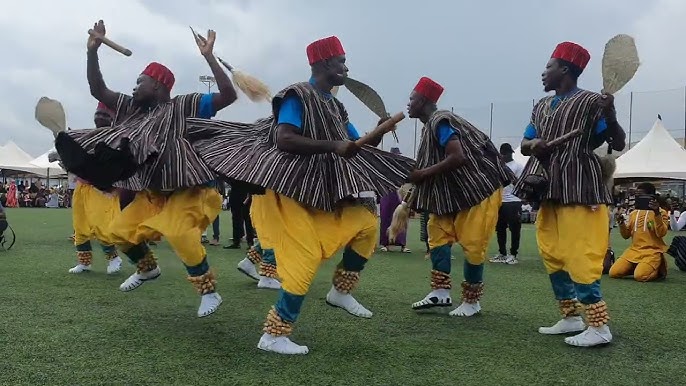The Kotokoli, commonly referred to as the Tem people, are an intriguing ethnic group that is mostly found in Ghana and Togo. An extensive examination of their rich history, culture, and way of life is given in this article. Understanding the Kotokoli helps us better appreciate the diversity of West Africa and the particular difficulties that smaller linguistic groups in the area experience.
Who are the Kotokoli people and where do they live?
The Kotokoli, also referred to as Tem or Temba, are an ethnic group predominantly found in Togo and Ghana. The majority of Kotokoli people reside in the central region of Togo, with significant populations also present in northern Ghana and parts of Benin. Their primary language is Tem, a Niger-Congo language that serves as a crucial element of their cultural identity.
The Kotokoli are believed to have emigrated from present-day Burkina Faso into the Sokode region of Togo during the 1600s. They arrived as a confederation of Gurma chiefdoms, establishing settlements that would later become important centers of trade and cultural exchange. The name “Sokode,” given to their primary settlement, reflects the historical importance of this migration.
What is the historical background of the Kotokoli?
The history of the Kotokoli is closely related to the ancient caravan routes that passed through Togo. Their towns’ prime location along a former caravan route in Togo, particularly Sokode, had a big influence on the growth of their economy and culture.
It’s interesting to note that the word “Kotokoli” has a fascinating history. Due to the group’s reputation for shrewd and maybe dishonest business practices, local merchants grew irritated and started referring to them as “koto kolim,” which translates to “give and take back” in the dialect. After some time, this nickname changed to “Kotokoli,” which is now the commonly used term to refer to this ethnic group.
The Kotokoli’s historical prominence is evident in their political structure. The seat of the high chief, known as the Uro, is located in Sokode. This paramount chief appointed his national chief, whose court sits in Madina, demonstrating the complex political hierarchy that developed among the Kotokoli.
How do Kotokoli social structures and family life function?
Kotokoli social structures are characterized by close-knit communities and strong family ties. Their homes are typically clustered together, with each cluster containing an enclosure that serves as a communal space. This arrangement reflects the importance of community in Kotokoli culture.
Family life among the Kotokoli is governed by traditional practices, many of which have been preserved over generations. Kotokoli marriages are usually arranged by parents while the children are still infants. Before a marriage can take place, a young man must perform bride service, working for his future in-laws for a certain period. Additionally, a substantial bride-price in livestock is given to the family of the bride.
Polygamy is permitted among the Kotokoli, although it is not universally practiced. This family structure can lead to complex household dynamics and extended family networks.
What role does oral tradition play in Kotokoli culture?
Oral tradition holds a significant place in Kotokoli culture. One of the most fascinating aspects of this is the practice of reciting family lineages and praises. Kotokoli individuals often recite their family lineage and praise names, a tradition that serves to preserve family history and reinforce social bonds.
The Kotokoli believe that praises sung about an individual can have a tangible impact on their life and fortunes. This belief underscores the power attributed to spoken words in Kotokoli culture and highlights the importance of oral traditions in shaping their worldview.


